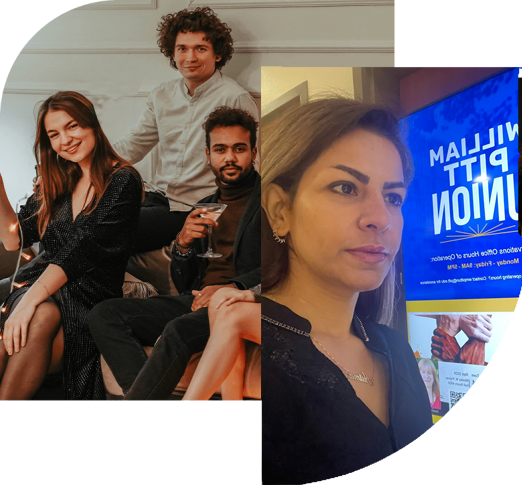
My Rsesarch Realm
My field of study is the experiences of minoritized and marginalized women, specifically Muslim women’s issues in non-Muslim contexts.
Research Realm


To live a creative life, we must lose our fear of being wrong
Research Realm
My field of study is the experiences of minoritized and marginalized women, specifically Muslim women’s issues in non-Muslim contexts.
The main purpose is to provide students with a global perspective of feminist studies in which the geopolitics of feminism and local issues are highlighted. My research uses intersectional feminism to analyze different ways Muslim women experience discrimination. For instance, I conducted a research study on the limitations, adaptations and challenges of sexual minorities in Muslim society. Through my work, I have raised the voices of ethnic and religious minorities, highlighting the experiences of individuals belonging to those groups and established research scaffolding for enhancing their level of social integration and legal protection. I have provided insights into how the lives and rights of individuals from minority groups are currently challenged, along with suggestions for improving their capacity to achieve improved social standing and empowerment.
My experience in Europe also shows that the traditions, jurisprudence and customs of Muslim female students are unknown to non-Muslim populations, so I undertook research into the sense of recognition of veiled and unveiled Muslim students in European universities. Although my main focus in most of my research projects has been on qualitative methods, such as ethnography, focus group, grounded theory, I am familiar with quantitative methods and statistical analysis by SPSS and CART.
As for my research plan in the future, I am interested in putting colored and covered Muslim feminism in dialogue with global feminism and intersectional feminism. I would like to articulate the concept of Islamic feminism with Black feminism as an emancipatory movement in feminist literature.
Research and Diversity
I have both professional and personal reasons for paying more attention to diversity in the academic environment. I come from an Islamic country where there are limited opportunities for students in an academic environment and a series of other factors that are pushing young people out of Iran to pursue higher education. These push factors include the worsening economic situation, the effects of many years of sanctions, corruption, the increasing Islamization and systematic strengthening of religious institutions by the government, censorship, and restrictions imposed on the free flow of information and the internet. Iran is one of the lowest-ranking countries in the world in terms of academic freedom and in terms of the Global Gender Gap. Although the percentage of women accessing higher education is almost 60%, female Iranian students cannot study for some engineering majors at Iranian universities. This is seen to be one of the reasons why a significant group of Iranian female students have migrated to foreign universities. Furthermore, Iranian women have been subject to compulsory hijab (dress code) and gender segregation policies. Baha’i students have constitutionally been deprived of post-secondary education in Iran through various administrative practices as part of a larger persecution scheme against religious minorities in Muslim countries. Sexual minorities such as transgender groups have also faced restrictions in terms of enrolling in tertiary education. Many Muslim students leave their countries to study in Western universities where they expect to not face gender, ethnic, religious, or racial discrimination. Their actual experiences are often a mix of new freedoms and disappointed prejudices. I investigated this controversial issue among Muslim veiled female students in an Italian higher education institution. My research study revealed that stigmatization, violation of individuals' rights, sense of exclusion, and maldistribution are crucial issues in realizing the idea of an inclusive university in Europe. I also found out that geopolitical factors such as international sanctions and Islamophobia hurt the sense of recognition of Muslim students abroad, specifically after recent events in Palestine, Afghanistan, and Iran. My study argued that an intersectional and inclusive approach that centers identities (including gender, nationality, and religion) can create the structural and sociocultural supports for recognizing and valuing differences in higher education.



